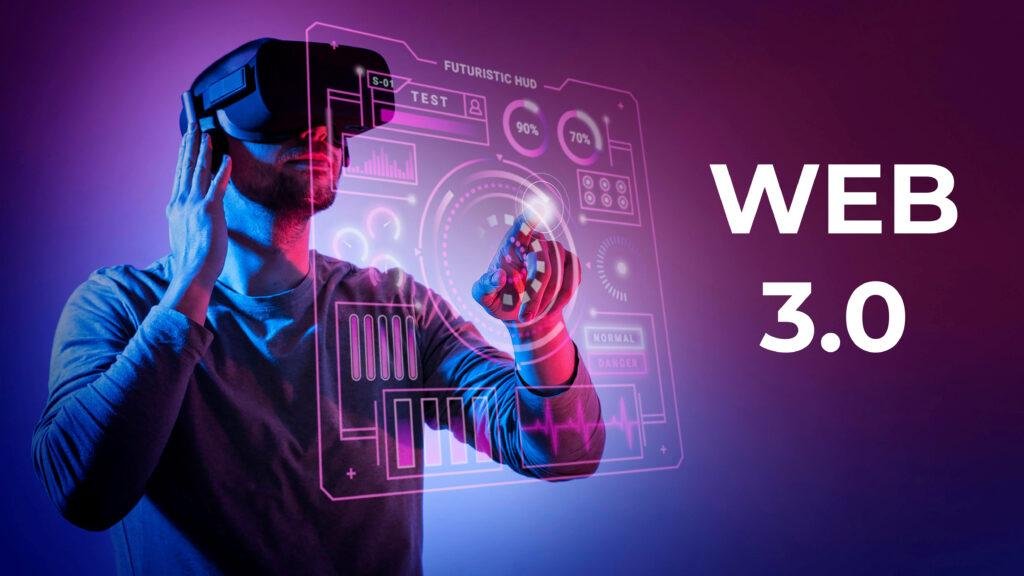The internet has come a long way since its inception in the 1960s. From simple text-based websites to multimedia-rich platforms, the web has evolved to become an integral part of our daily lives. But what does the future hold for the internet? Many experts believe that Web 3.0, the next evolution of the internet, will bring about significant changes in the way we interact with the web.
Web 3.0, also known as the “Semantic Web,” is all about data. Unlike its predecessor, Web 2.0, which focused on user-generated content, Web 3.0 is about creating a smarter, more intelligent web that can understand the meaning behind data. This means that machines will be able to interpret and analyze data in a way that is currently impossible with Web 2.0. The internet is set to become even more intelligent and intuitive than ever before. In this article, we will explore some of the key features of Web 3.0.
Decentralization: One of the defining features of Web 3.0 is decentralization. Unlike the current internet, which is largely controlled by a few large corporations, Web 3.0 will be more decentralized, with data and services spread out across a network of nodes. This will make the web more democratic and give users greater control over their data.
- Semantic web: Web 3.0 will enable machines to understand and interpret data, providing a more meaningful and personalized experience for users. With semantic web technology, machines will be able to recognize the context and meaning behind data, allowing for more accurate search results and more targeted advertising.
- Artificial Intelligence: Web 3.0 will make use of artificial intelligence (AI) and machine learning to provide more intelligent and responsive services. With AI, machines will be able to understand user preferences and provide more personalized recommendations, making the web a more personalized experience.
- Personalization: Web 3.0 will be more personalized than ever before, with services tailored to each user’s unique needs and preferences. With the help of AI and semantic web technology, machines will be able to understand user behaviour and deliver more personalized experiences, from targeted advertising to personalized search results.
- Interoperability: Web 3.0 will enable greater interoperability between different systems and services, making it easier to share data and collaborate across different platforms. This will make it easier for users to work together on projects, share information, and collaborate in real-time.
- Blockchain: Web 3.0 will make use of blockchain technology, which provides a secure and transparent way of storing and sharing data. With blockchain, users will be able to control their data and keep it secure, without relying on centralized authorities to manage their data.
- Decentralized identity: Web 3.0 will make use of decentralized identity systems, which will give users greater control over their online identity and data. With decentralized identity, users will be able to control their personal data, ensuring that it is used only for the purposes they intended.
- Security: Web 3.0 will be more secure than ever before, with data stored on a decentralized network of nodes and secured with blockchain technology. This will make it more difficult for hackers to gain access to user data, ensuring that users can feel safe and secure when using the web.
Web 3.0 will also bring about significant changes in the way we conduct transactions online. Currently, most online transactions are processed through centralized payment gateways, such as PayPal and Stripe. These gateways charge fees and can be vulnerable to hacks and fraud. With Web 3.0, transactions will be processed through decentralized payment systems, such as cryptocurrency. This will enable faster, more secure, and cheaper transactions without the need for intermediaries.
n conclusion, Alobha Technologies Web 3.0 represents the next evolution of the Internet, and it has the potential to bring about significant changes in the way we interact with the Web. With its focus on decentralization, AI, machine learning, and blockchain technology, Alobha will create a smarter, more intelligent web 3.0 that can understand the meaning behind data. By giving users more privacy, control, and ownership over their data, Web 3.0 will enable a more open, transparent, and secure web. As we move closer to the rollout of Web 3.0, it will be exciting to see how these changes will impact our daily lives and the future of the internet.

Pingback: IoT app development's real-world impact across industries